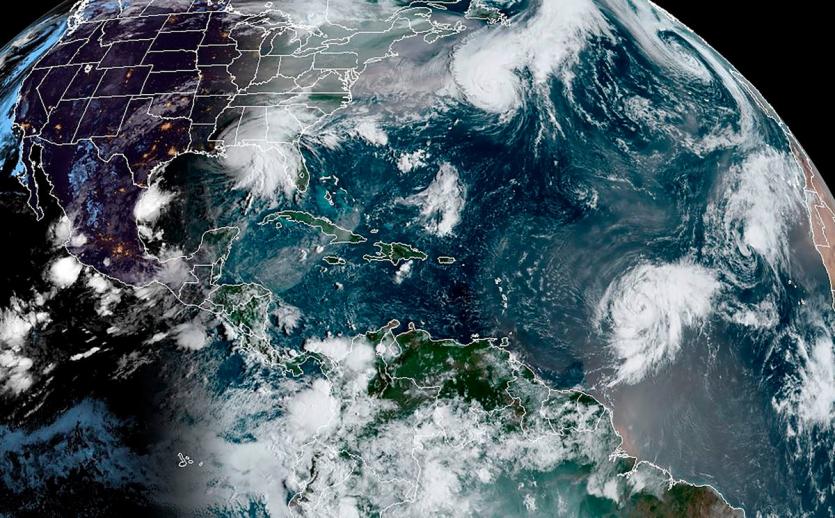A satellite image shows various hurricanes in the Atlantic Ocean last month. The 2020 Atlantic hurricane season is the second most active on record - and its not over yet. Image:AFPviaGetty
Deepest ocean depths are warming at an unprecedented rate – warmest in 2,900 years
By Patryk Krych | The World Daily | OCTOBER 15th 2020
A trend of warming can now be detected in oceanic depths, at rates much higher than scientists previously thought would be possible in the modern day. Warming rates that could contribute to rising sea temperatures, and catastrophic weather situations.
A new study published in the American Geophysical Union’s journal: Geophysical Research Letters had revealed that between the years of 2009 and 2019, the temperatures recorded at four varying depths in the Atlantic Ocean’s Argentine Basin off the coast of Uruguay had warmed by 0.02-0.04C – at the depths where humanity cannot typically interfere and the temperatures are deadly.
“We didn’t expect that you would see hour-to-hour and day-to-day variations down that deep,” said the lead author of the study, an oceanographer at the US National Oceanic and Atmospheric Administration (NOAA), Christopher Meinen. “There are processes in the deep ocean that are making things change rapidly, and we don’t really know what those processes are yet.”
The analysis was made over the ten-year period, using hourly temperature recording in order to ascertain just how the temperatures would change in the modern climate in the depths across a decade. The temperatures were taken at four different moorings, representing different depths. The shallowest of the depths was at 1,360 metres, and the deepest was 4,757 metres.
“If you think about how large the deep ocean is, it’s an enormous amount of heat,” Meinen added, stressing that even though a change of 0.02-0.04C may seem extremely small, it may in fact have severe consequences for an ecosystem as fragile and susceptible to environmental change as that of the ocean.
Another, separate study done by researchers from the United States and Canada had also involved the analysis of the Atlantic Ocean, and what they found was that the ocean had officially reached its hottest temperatures in the last 2,900 years.
“Temperatures have steadily increased since the 15th-century minimum; the rate and magnitude of warming over the last few centuries are unprecedented in the entire record, leading to the last decade which was the warmest,” in the past 2,900 years, the report wrote, published in the journal of ‘Proceedings of the National Academy of Sciences of the United States of America’ (PNAS).
For the study, scientists looked at temperature data, as well as sediment cores and ice drilled out from ice sheets and sea beds. This allowed them to study the samples and ascertain their age, and shifts in temperature over time through the microbes and chemicals within them. For the Atlantic Ocean, they primarily inspected the sediment cores and found that the last time the oceanic depths had seen a warmer period was between 100BC and AD420.






